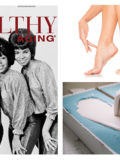By Dr. Fanar Swaida
Aging is commonly associated with declining health. There lies limited moveability and depleting energy levels for a significant population. This negatively impacts independence, career, and social networks.
Studies on aging suggest that health-promoting behaviors like robust physical exercises and intellectual activities promote positivity. In addition, a sense of well-being promotes a positive attitude towards aging despite long-term health problems and physical disability.
Aging affects different parts of the human body, including the mouth. The functioning of lips, teeth, and other related structures is integral to general health.
Oral disease can affect activities related to the mouth, including speaking, chewing, swallowing, and smiling. It can also have a local, systemic, and even psychological impact, leading to anxiety or depression.
People consider dental illnesses less significant with aging, believing general health is deteriorating and dental ailments are trivial.
However, a simple daily routine for optimum oral health marks the foundation of healthy aging.
Daily Routine for a Healthy Mouth in Adults
It’s entirely possible that people may start losing their teeth by the age of 45. So, oral hygiene routines in such scenarios may vary.
Oral hygiene practice for natural teeth encompasses:
- Brushing with a small-headed or double-headed toothbrush.
- Using fluoridated toothpaste with 1500 ppm.
- Brushing for 1-4 minutes twice daily.Additional care is necessary if individuals have lost teeth and are using false teeth (missing a few teeth) or a denture (all teeth missing)It involves:Daily checking of gums beneath the false teeth or denture.
Brushing of removable false teeth with mild soap and water should be performed.
Preferably refrain from scrubbing the gum side.
Cleaning of false teeth and dentures can last 1-3 minutes daily.
Using oral swabs with baking soda for cleaning gums.Additional care for the false teeth/denture supplements routine oral hygiene. Equally important is the diet an individual follows.Diet Change in 45+ Aged Adults
Poor oral health affects the strength of aging adults and increases vulnerability. The most important link that may justify such a connection is diet.
Based on several studies, seven food groups are tagged as healthy – meat, fish, dairy, vegetables, fruits, legumes, and nuts. Consuming more of these foods reduces the incidence of heart disease, stroke, or cardiac arrest.
However, people with poorer oral health eat less healthy food, resulting in weakness. Research from a Canadian population suggests a strong and independent association of poor oral health with weakness. Improving oral health services throughout the lifetime as people age can improve overall health outcomes.
Dr. Fanar Swaida is a dentist located with Trafalgar Dental & Rockwest Dental in Mississauga Ontario Canada.
The above article is excerpted from Healthy Aging® Magazine. To continue reading this article and more like it, subscribe to Healthy Aging® Magazine, the lifestyle magazine that is all about following your passion and what you can do rather than what you can’t.












